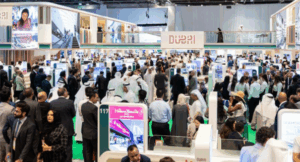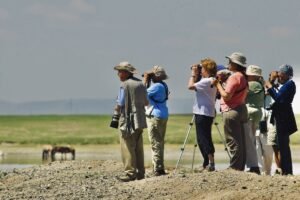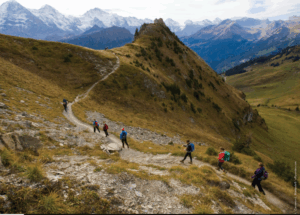UN : High-Level Thematic Event on Tourism

It is a great pleasure for me to welcome you all to the High-Level Thematic Event on Tourism – focusing on the crucial role of tourism and its extraordinary potential to contribute to sustainable development.
Tourism is one of the most dynamic sectors of the global economy. The numbers speak for themselves.
In 2023, tourism accounted for 3 per cent of global GDP – with an estimated direct gross domestic product of $3.3 trillion. The sector employs one in every 10 people around the world.
And with women holding 54 per cent of those jobs – versus 39 per cent in the broader economy – tourism provides an important vehicle for women’s empowerment.
Its capacity to attract significant volumes of foreign direct investment and rapidly increase exports has made it an attractive and popular catalyst for development.
For countries in special situations – least developed countries, landlocked developing countries and small island developing States – it is an indispensable driver of income and tax revenue, not to mention, employment directly created in the sector as well as those that are spin-offs in other sectors.
In fact, in small island developing States alone, tourism accounts for nearly 35 per cent of all export earnings, and as much as 80 per cent of national exports.
But, with a country’s heavy dependence on tourism comes cost and huge potential risks.
Despite the spectacular benefits reaped across its vast supply chains – tourism is also intrinsically susceptible to a host of disruptive forces – such as climate change, pandemics, acts of terrorism, and domestic political instability.
When disasters strike, the economic fallout is often huge and immediate – felt painfully in losses to GDP, foreign currency earnings and employment leaving countries only a crisis away from the near total destruction of the very economic base they need to pay for goods and services and other imports from abroad.
In parallel, the tourism sector’s massive consumption of energy, land and water – and crucially its high generation of carbon emissions – can create unbearable pressures on fragile natural ecosystems, if adequate attention is not paid to the issue of sustainability.
Around the world, once vibrant coral reefs are falling victim to cruise ships, docking facilities, spikes in recreational fishing, and even land-based chemical effluent released into the environment that eventually finds its way to the sea.
In parts of Africa, and elsewhere around the world, wildlife struggle for places to naturally graze, breed and roam – as forests, rivers, and land continue to disappear, due in part to overuse, without any regard by the industry to the safe and optimum carrying capacity of those areas.
The explosive popularity of social media has only compounded these pressures, with “the fear of missing out” driving travellers to destinations in greater droves – in some cases causing a 1,000-fold increase in the visitor population.
The resulting dire consequences are often borne by local communities – particularly indigenous peoples, who have preserved 80 per cent of the Earth’s forests, grasslands and other eco systems for centuries.
How are we to manage the unique challenges of growing this vital industry, while at the same time, preserving and protecting the precious and often fragile ecosystems that created them in the first place?
We need a global tourism sector that is sustainable – one with deep local value chains that expand demand for locally made products and services in ways that also directly and positively benefit local communities.
A sector that serves as a positive force for biodiversity conservation, heritage protection and climate friendly livelihoods;
A sector that harnesses digital technology, fosters innovation – and expands opportunities for job creation and economic growth, including for women, young people, indigenous and local communities.
In order to get there, we must value what counts.
I therefore invite the General Assembly to support the Statistical Framework for Measuring the Sustainability of Tourism – which was adopted at the UN Statistical Framework just last month.
It offers a much-needed foundation for measuring the economic, social, and environmental aspects of tourism – at both local and global levels.
But sustainable tourism alone is not enough to create long term stability in the sector and to guarantee job sustainability.
We also need a global tourism sector that is resilient; a sector that understands and caters to its own vulnerability, helps to formalise the informal economy, is designed and built such that the physical plant is able to withstand external environmental shocks and in possession of necessary ancillary systems in place – to minimize the period of recovery after a disruptive event.
In such a scenario, many opportunities abound for strong multistakeholder partnerships.
Increased focus on public-private-partnerships is required – and broad diversification of activities, so that countries and communities are better supported to shorten the recovery time needed to resume full operations after a disruptive event.
Above all, there must be recognition that the key sectors of the economy and issues featured throughout Sustainability Week – that is to say, resilient infrastructure, sustainable transport, renewable energy, and relief from the unjust burden of exorbitant debt – are all essential to building sustainability and resilience in the global tourism sector.
We are, therefore, fortunate to have a diversity of voices here today sharing their perspectives from different operational vantage points of the tourism industry.
I look forward to hearing your views on how we can more effectively harness the power and potential of the global tourism sector to accelerate progress across the Sustainable Development Goals – including through alleviating poverty and fulfilling our central promise of leaving no one behind.
Opening Remarks by the President of the General Assembly,
Mr. Dennis Francis, at the High-Level Thematic Event on Tourism
16 April 2024














